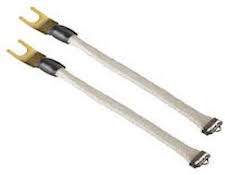It’s the time of year for saving money!
As in most technologies, there exists in high-end audio a whole host of products commonly described by audiophiles as “tweaks.” Their goal is to offer some miraculous improvement to an audio system for an exceedingly low cost. Many of these products exist on the fringe of believability and before long, almost inevitably, the ubiquitous term “snake oil” is applied.
 Many of these products purport themselves to function in some highly technical realm of scientific explanation. Most often, terms like quantum and subatomic are bandied about in order to attach relevance to a technology whose provenance is either unknown or highly dubious.
Many of these products purport themselves to function in some highly technical realm of scientific explanation. Most often, terms like quantum and subatomic are bandied about in order to attach relevance to a technology whose provenance is either unknown or highly dubious.
There are any number of them, all with the purported expectation of bettering the sonics of any audio system, but most importantly, doing so with “yours.” Most are not terribly expensive, or at least not when compared to other components in a system’s signal chain. Their price point is predictably low enough to attempt to beguile the buyer into thinking “why not?”
There are any number of designs: stickers that go on the backs of components, plastic things clamped around cables to do whatever, devices to sit on top of components, hollow bowls made from some ancient, or conversely, some space age material that is placed somewhere in the room, and not surprisingly, the list goes on and on. They may well be considered the infomercials of luxury audio. Minus, that is, the smiling, attractive spokesperson making the sales pitch. Perhaps worst of all, there’s no “but wait” at the end to sweeten the deal. All too often it is just spending money for spending money’s sake.
Not all of these devices, universal in their claim for auditory excellence, are only and specifically intended to separate your money from your pocket. Some of them actually work. So does that necessarily make them what, perhaps unfairly, some term as snake oil?
Any of these devices have operational believability that varies from user to user. What seems to be most fascinating is that for some they work exactly as advertised and to others are little more than a waste of hard-earned money.
 What of the designers of these products? Are they genuine, bona fide scientists, trained in the art of subatomic or quantum whatever, or simply a modern day version of P.T. Barnum? Do their manufacturing facilities look something like a laboratory or are they more akin to a large tent?
What of the designers of these products? Are they genuine, bona fide scientists, trained in the art of subatomic or quantum whatever, or simply a modern day version of P.T. Barnum? Do their manufacturing facilities look something like a laboratory or are they more akin to a large tent?
Many audiophiles have either proudly or ashamedly gone down this path. I once tried a product called WA Quantum Chips [seen at right] to less-than-stellar results. Oddly enough, these devices did change the sound, however, the sonics worsened, much so, in fact. After two days I removed them all and returned them. Despite my results, however, they received positive reviews.
Conversely, to my delight have been the results of a product called Audio Prism Ground Control [the spade-tipped devices seen below right]. These devices operate on a premise that dates back to the very early use of tubes for radios and the use of a copper plate for grounding. They attach to the negative terminal of each speaker and seek to enhance the grounding properties of the system, lower the noise floor, and improve musical definition. They sell for $149 a pair, which is not at all expensive considering what they do. There is also an RCA version for connecting to components.
 It comes as no surprise that for these, or the other varying and substantial number of similar devices claiming any measure of purported sonic improvement, there will be three main beliefs: they work as advertised, they don’t work at all and the all too typical; “I don’t believe in such things.” Let’s face it: Regardless of how much debate any product receives, whether pro or con, there will be those that don’t accept a claimed result in any capacity.
It comes as no surprise that for these, or the other varying and substantial number of similar devices claiming any measure of purported sonic improvement, there will be three main beliefs: they work as advertised, they don’t work at all and the all too typical; “I don’t believe in such things.” Let’s face it: Regardless of how much debate any product receives, whether pro or con, there will be those that don’t accept a claimed result in any capacity.
There is one universal, immutable truth when it comes to something claiming to revolutionize an audio system for a mere pittance: Do a trial. In order to know if they actually work they must be tested in one’s own system to find out. It is also advisable to know about a return policy before buying so if they fail on any level, they may be returned for a refund.
When they do work, regardless of the degree to which they do, the listener is treated to sonic improvements at a budget cost. There is typically a low risk / great reward attached to these products. It seems they universally work or they don’t. There will of course be those who ridicule and deride them despite not having any first-hand knowledge how or if they work, what they do or don’t do, or if they are worth the cost.
So are they legitimate or are they snake oil? Well, that decision, as it rightfully should be, is completely the opinion of the individual user. Just as in the food we eat, the clothes we wear, the cars we drive and the music to which we listen, there will always be differences of opinion. The real decision lies in deciding for yourself and being your own judge. It is, after all, your system, and your money.
How do you feel about tweaks? Got any favorites? Let us know in the Comments section below.





